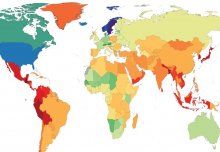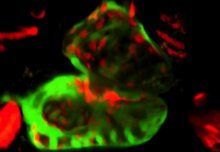

PREGNANT PAUSE
Procedure associated with increased risk of premature birth and neonatal loss
Researchers are urging surgeons to reconsider using a particular type of thread for a procedure to prevent premature birth.



Procedure associated with increased risk of premature birth and neonatal loss
Researchers are urging surgeons to reconsider using a particular type of thread for a procedure to prevent premature birth.


'Screen-and-treat' scheme for hepatitis B may prevent deadly complications
Research into Africa's first 'screen-and-treat' programme for hepatitis B suggests the initiative may reduce deadly complications of the virus.
 1
1


Dutch men and Latvian women tallest in world according to 100-year height study
Dutch men and Latvian women are the tallest on the planet, according to the largest ever study of height around the world.
 32
32


Flu vaccine may reduce risk of death for type 2 diabetes patients
The flu vaccine may reduce the likelihood of being hospitalised with stroke and heart failure in people with type 2 diabetes, according to research.


Zika epidemic likely to end within three years
The current Zika epidemic in Latin America is likely to burn itself out within three years, suggests new research.


Sound waves may hold potential to treat twin pregnancy complications
High energy sound waves could treat a potentially deadly complication that affects some twin pregnancies, says new research.
 1
1


Star role for 'Wars2' gene in heart disease risk
A gene called 'Wars2' has been pinpointed as a potential new target in treating heart disease, in research published today.


Viral hepatitis kills as many as malaria, TB or HIV/AIDS, finds study
Viral hepatitis has become a leading cause of death and disability across the globe - killing as many people annually as TB, malaria or HIV/AIDS.
 1
1


Patient complaint procedures leave doctors emotionally distressed
Complaints against doctors can impact on their psychological well being, according to a new study from Imperial College London.
 2
2


Robotic rectum may aid prostate cancer diagnosis
A robotic rectum may help doctors and nurses detect prostate cancer.